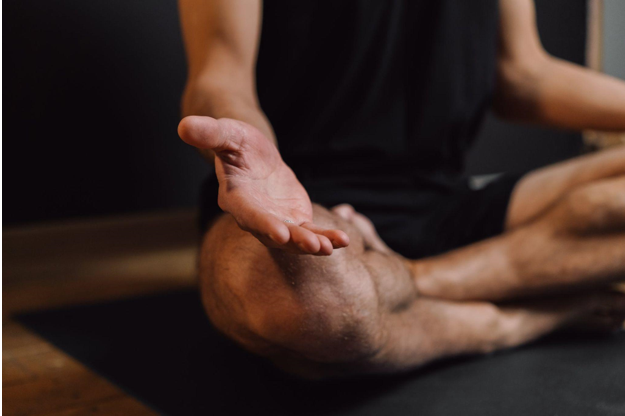As much as we may try to ignore it, anxiety has a way of creeping in and sneaking up on us, sometimes when we least expect it. But when it comes to stress surrounding a return to work after lockdown, if you know how to address anxiety, you'll be incredibly glad you did so ahead of time.
The Effects of Long-Term Stress and Anxiety
If you are someone experiencing significant anxiety about the prospect of returning to in-person work, you're not alone. In fact, one recent study found that out of 4,553 office workers in five different countries, every single one of them reported feeling anxious about the concept of returning to in-person work. While some anxiety is normal (and certain levels of stress can be beneficial), too much stress will ultimately take a toll on our health.
In particular, long-term, chronic stress is associated with:
- Mental health problems
- Obesity, weight gain, and eating disorders
- Enhanced signs of physical aging
- Memory loss
- Fatigue
These are just some of the effects of chronic, long-term stress. Read more about them in this post. It's important to take any steps we can to learn how to address anxiety effectively and manage the effects it can have on us. As you return to work, or plan to, here are some ways to address your anxious feelings head on.
How To Address Anxiety: Returning To Work After Lockdown
Depending on the particular type of anxiety you're feeling, there are different ways to address it. For example, your anxiety may be surrounding the health risks of working in an office with other people again. On the other hand, your anxiety could be more closely related to social anxiety.
But these tips for how to address anxiety as you return to work can help you manage these anxious feelings, no matter what triggers them.
Social Anxiety About Returning to Work
Maybe over the last year plus, you've become quite comfortable in your little bubble. You have been perfectly fine with being confined to your home, and you don't tend to enjoy social interaction at work in the first place. Leading up to your first day back, your anxiety surrounding the social elements of in-person work could be at an all-time high.
One way to address this anxiety head-on is to get it out of the way as quickly as possible. Let's say you have a return date two weeks from now. Why not schedule a coffee date with two coworkers a week from now? This can help take the edge off, and also establish bonds with coworkers that can help you feel more comfortable and have less anxiety about going back to the office.
In most cases, you'll find your anxiety about social situations can begin to ease once you're actually in them. If not, plan ahead with a plan for managing these anxious feelings. For example, plan a spot in the office where you can go to be alone. Or, have a friend on standby to call and help you relax if your anxiety becomes overwhelming.
Focus on Facts
We also encourage you to get very clear about the specific anxiety you're feeling when it comes to going back to work. We already mentioned how it could be social anxiety or health anxiety. But whatever it is that's setting off your anxious feelings, you need to know what your triggers are to figure out how to address anxiety.
Once you have determined what you're most anxious about, begin to focus on specific facts surrounding that anxiety, rather than your feelings that may not be rooted in fact or reality.
For example? Let's say your anxiety centers around health risks of returning to work. Turn to reliable sources of information that can ease your mind about the current risk of transmission. This includes the World Health Organization, the CDC, and your local health department.
Based on this information, you can focus on facts rather than the anxious feelings you're facing. Once you know, for example, that transmission rates are incredibly low in your area or that vaccination rates are high, this can give you a lot of peace of mind.
(Want to explore the facts about anxiety? Start here)
Prioritize Your Health and Well-Being
It's never not a good time to prioritize your well-being! But if you're experiencing increased anxiety about returning to work, it's more important than ever to focus on taking care of yourself. And this applies whether you have already returned, or if the date is approaching.
Start with Adequate Sleep
For starters, be sure to prioritize your sleep schedule. Focus on getting at least seven to eight hours of sleep each night. You have probably noticed how much more stressed you feel when you're running on little sleep. Set yourself up for success by getting as much as you need.
Incorporate More Physical Activity
You can probably guess what's coming next: it's time to start incorporating regular physical activity into your life if you haven't already.
This idea isn't a new one—it's one we've all grown up hearing. But the truth is, physical activity and exercise can truly be one of the most powerful resources at your disposal for improving your stress levels and your overall health. If you ask your doctor how to address anxiety, incorporating more movement into your life will often be one of the first things they suggest.
Based on all of the research that supports this concept, it's no surprise.
"Scientists have found that regular participation in aerobic exercise has been shown to decrease overall levels of tension, elevate and stabilize mood, improve sleep, and improve self-esteem. About five minutes of aerobic exercise can begin to stimulate anti-anxiety effects."
That's right: just FIVE minutes! We all have five minutes right?
For starters, take a five minute break each hour at work to do some gentle stretching, deep breathing, or go for a walk around the office. You could also consider getting a workout in before work, walking to work, or attending a fitness class at the end of the day. It can take time to get into a routine that works for you, but you will thank yourself when your health improves and your anxiety levels decrease right before your eyes.
Learn How to Address Anxiety with Vagus Nerve Stimulation
Are you new to the concept of vagus nerve stimulation? Let's start with the basics.
The vagus nerve is the longest cranial nerve in the body. It controls part of your body’s automatic responses—the parasympathetic nervous system. This is responsible for a vast range of functions and communicates sensory information between the brain and the organs.
For example, the vagus nerve is crucial for activating your relaxation response and helping to regulate tension. The stronger your vagus response, the more likely you may be to recover quickly from stressful events.
As for how to strengthen your vagus response? It begins with improving your vagal tone. And the most accessible way to do this is with the use of vagus nerve stimulation. When it comes to using VNS to improve overall well-being, this can be done through the ear.
In the case of using VNS to treat serious medical conditions, surgical implantation may be required. Rather than relying on these invasive measures, Xen by Neuvana headphones can be worn, connected to your handheld Xen device, and used to stimulate the vagus nerve through the ear.
Do you want to explore this option for yourself? Click here to learn more.
For further reading about how to address anxiety:
- https://neuvanalife.com/blogs/blog/challenging-your-comfort-zone?_pos=1&_sid=3164c9ef1&_ss=r
- https://neuvanalife.com/blogs/blog/how-do-stress-allostatic-load-affect-my-health?_pos=2&_sid=3164c9ef1&_ss=r
- https://neuvanalife.com/blogs/blog/mastering-the-art-of-strengthening-your-vagal-tone?_pos=3&_sid=3164c9ef1&_ss=r
- https://neuvanalife.com/blogs/blog/navigating-emotional-hardship?_pos=4&_sid=3164c9ef1&_ss=r
- https://neuvanalife.com/blogs/blog/practicing-wellness-while-social-distancing?_pos=5&_sid=3164c9ef1&_ss=r





